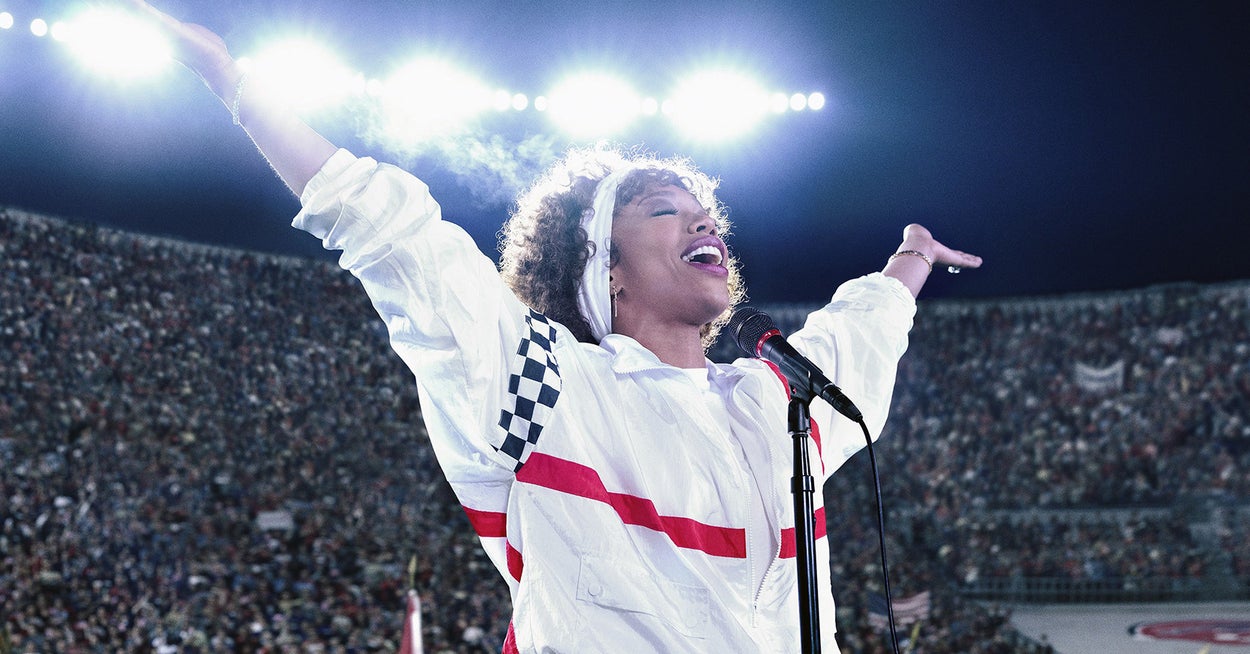We watch her meet Robyn Crawford (Nafessa Williams) and see their friendship blossom into sexual intimacy and true partnership. Their relationship becomes a buffer from societal and family expectations, as Whitney shoots to fame under the guidance of her mom and Clive Davis (Stanley Tucci), and eventually her dad (Clarke Peters).
“How do I look?” Whitney asks Robyn during the making of 1985’s “How Will I Know” video with her big bow. “Ridiculous,” says Robyn. “That’s what they want, America’s princess,” says Whitney. “Watch me give it to them.”
Her father pressures her and Robyn to grow out their hair and date men. Whitney tries to push back but always seems to end up struggling under his power. Their relationship ends.
Still, we see her demonstrate agency in her career. Houston wasn’t a songwriter but she was a collaborative shaper of her own music, and Lemmons does a great job showing that. In scenes with Whitney and Clive Davis, the film lets us hear the bland forgettable voices on the original demos for hits like “How Will I Know” or “I Wanna Dance with Somebody,” conveying how Whitney turned them into powerhouse vocal spectaculars. She also sped up or slowed down the tempo of songs to capture their meaning, including her iconic 1991 rendition of the national anthem.
The film covers her tumultuous marriage to Bobby Brown (Ashton Sanders) and her increasing drug use, but it doesn’t pinpoint Houston’s decline to any one thing.
“I don’t know how much longer I can do this,” she tells Bobby after suffering a miscarriage on the set of 1992’s The Bodyguard. “Being everything to everybody.” At another meeting, she says: “Of course I’m exhausted. All Black women are exhausted.”
The biopic captures the true emotional weight of Houston’s fatigue and of her family’s betrayal. Her father allegedly mishandled her company funds and in 2002 sued her for more money. In one particularly strong scene, Whitney visits her father in the hospital, and he grabs onto her as he tells her to get a lawyer. She’s heartbroken and spirals further into drug use.
During a meeting with Clive Davis, he suggests she go to rehab. She looks out the window and sees her daughter Bobbi Kristina playing in the backyard with a man. Clive says it’s his partner. She’s surprised he’s bisexual. “I gave up a lot,” she tells Davis. We’re meant to assume she means, at least in part, her relationship with Robyn.
There’s a lot of ground to cover, and the film’s momentum falters a bit toward the middle and end. But it still gets at how, before her accidental death by drowning in 2012, she was haunted by the specter of her early vocals and her own aging.



